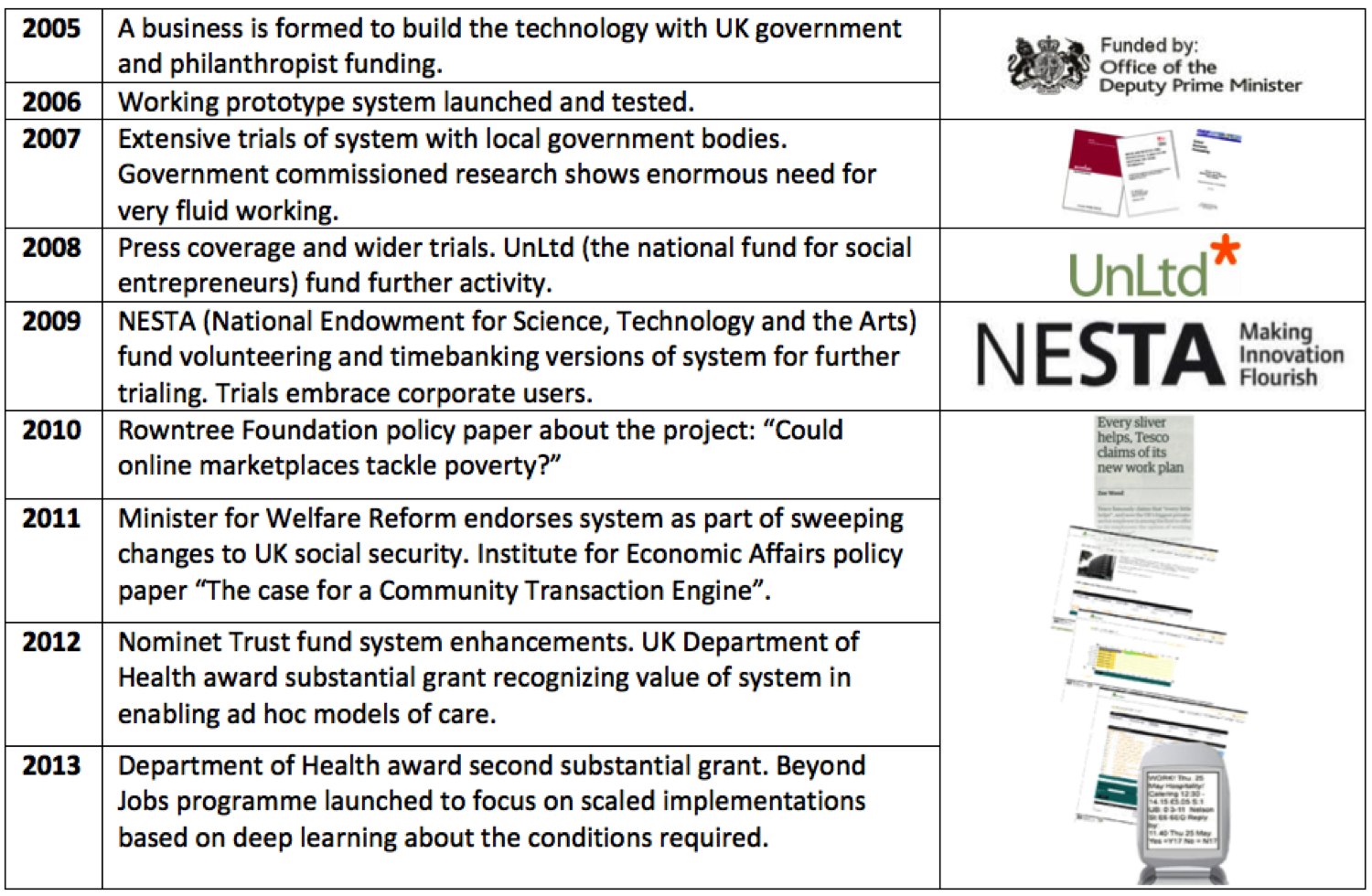 Thinking about this project predates the Sharing Economy, Amazon, Google, even eBay. A shift like this takes time.
Thinking about this project predates the Sharing Economy, Amazon, Google, even eBay. A shift like this takes time.
Three challenges
Launched at the end of 2013, Beyond Jobs is building on an enormous body of work by technology companies, think tanks, local governments, innovation funders and central government. The potential of advanced, high volume, markets for fragmented economic activity was first analyzed 20 years ago. There have been three challenges in realization:
- Technology: These transactions are fiendishly complex in their details. But they are extremely low value. The technologies required took time to become viable.
- Launch dynamics: Some online markets start with friends and family of the founders. Others need a more systematic launch. Generally; the more radical a model, the more it needs big forces aligned. In our case, those big forces are primarily government bodies. That makes our markets vulnerable to politics.
- Mindset: Irregular work is so often assumed to inevitably be unedifying, dead-end, low paid. We have had to convince decision makers it could be empowering; offering better progression and stability than many current jobs.
How we got here


In 2015, Aspen Institute’s Economic Opportunities Program introduced us to American states, cities and umbrella bodies. By 2016 a first group of workforce boards were looking into launching our markets. That led to a report funded by Casey Foundation in July 2017. In July 2018 our manual “How to Make a Market for Irregular Employment: a Guide for States, Counties and Cities“, enabled by Kauffman Foundation and Living Cities was published.
Work on a first US market launch in Long Beach and Los Angeles County won the US Conference of Mayors’ CommunityWINs award for 2018.
→ Team
